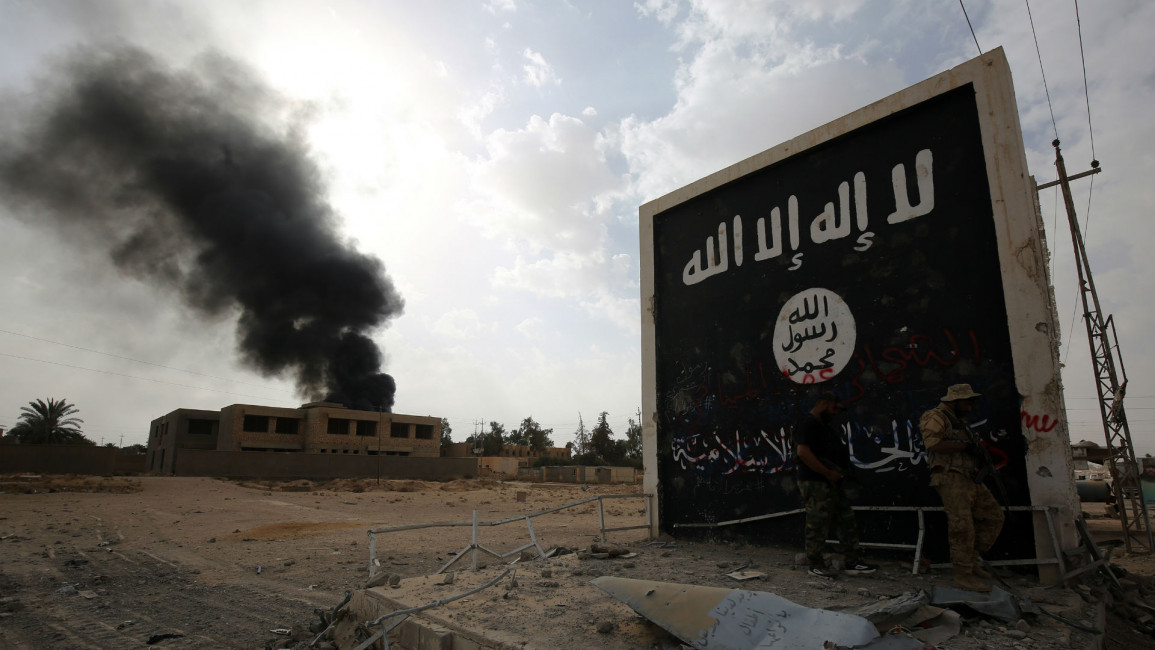Follow us on Facebook, Twitter and Instagram to stay connected
Biden to 'downgrade' anti-IS envoy role in US State Department reshuffle
Biden to 'downgrade' anti-IS envoy role in US State Department reshuffle
The reshuffle is seen as another sign the Biden government is refocusing on other areas of the world.
2 min read
IS could make an resurgence in Syria and Iraq, activists have warned [Getty]
US President Joe Biden will shift the anti-Islamic State group Special Envoy to the State Department's counter-terrorism bureau, Foreign Policy reported this week, marking a major change that critics say could weaken the fight against the group.
The State Department's Special Envoy for the Global Coalition to Defeat ISIS was appointed during the US-led intervention against IS in Iraq, and later Syria, in 2014.
After the defeat of IS' self-described "caliphate", the Biden government is now considering a new role for the special envoy.
It would see the department focus on IS' "terrorism capabilities" rather than its threat as a military force, Foreign Policy reported this week.
Officials told the current affairs outlet that the envoy position would be moved to a bureau within the State Department that handles counter-terrorism.
Officials said that relegating the anti-IS role to a "lower status" would signal that the US is downgrading the fight against IS just as the group threatens a resurgence in Syria and Iraq.
It could also undo "nearly seven years of diplomatic spadework to build up a worldwide coalition", the report added.
The State Department denied these claims and said its commitment to the fight against IS was "unwavering" and is steadfast in its commitments to the international coalition.
"While as a general matter we do not discuss ongoing internal deliberations, the Biden administration is committed to carrying forward the important mission to defeat ISIS," a State Department spokesperson told Foreign Policy.
"The 83-member Global Coalition to Defeat ISIS remains critically important to our efforts to ensure ISIS's lasting defeat."
But the new role would see the envoy reporting to a counter-terrorism director rather than directly to the Secretary of State.
Analysts have suggested that the move fits with the Biden administration's overall foreign policy refocus toward China, with Middle East issues pushed to the periphery.
Many have blamed a similar policy by Barack Obama's administration - which Biden served as deputy president - for the emergence of IS in the region, as well as the brutal Syrian regime crackdown on the opposition.
The period also marked the rise and fall of pro-democracy "Arab Spring" uprisings and the re-establishment of authoritarian regimes in Egypt and other countries.
The State Department's Special Envoy for the Global Coalition to Defeat ISIS was appointed during the US-led intervention against IS in Iraq, and later Syria, in 2014.
After the defeat of IS' self-described "caliphate", the Biden government is now considering a new role for the special envoy.
It would see the department focus on IS' "terrorism capabilities" rather than its threat as a military force, Foreign Policy reported this week.
Officials told the current affairs outlet that the envoy position would be moved to a bureau within the State Department that handles counter-terrorism.
Officials said that relegating the anti-IS role to a "lower status" would signal that the US is downgrading the fight against IS just as the group threatens a resurgence in Syria and Iraq.
It could also undo "nearly seven years of diplomatic spadework to build up a worldwide coalition", the report added.
|
|
The State Department denied these claims and said its commitment to the fight against IS was "unwavering" and is steadfast in its commitments to the international coalition.
"While as a general matter we do not discuss ongoing internal deliberations, the Biden administration is committed to carrying forward the important mission to defeat ISIS," a State Department spokesperson told Foreign Policy.
"The 83-member Global Coalition to Defeat ISIS remains critically important to our efforts to ensure ISIS's lasting defeat."
But the new role would see the envoy reporting to a counter-terrorism director rather than directly to the Secretary of State.
Analysts have suggested that the move fits with the Biden administration's overall foreign policy refocus toward China, with Middle East issues pushed to the periphery.
Many have blamed a similar policy by Barack Obama's administration - which Biden served as deputy president - for the emergence of IS in the region, as well as the brutal Syrian regime crackdown on the opposition.
The period also marked the rise and fall of pro-democracy "Arab Spring" uprisings and the re-establishment of authoritarian regimes in Egypt and other countries.



